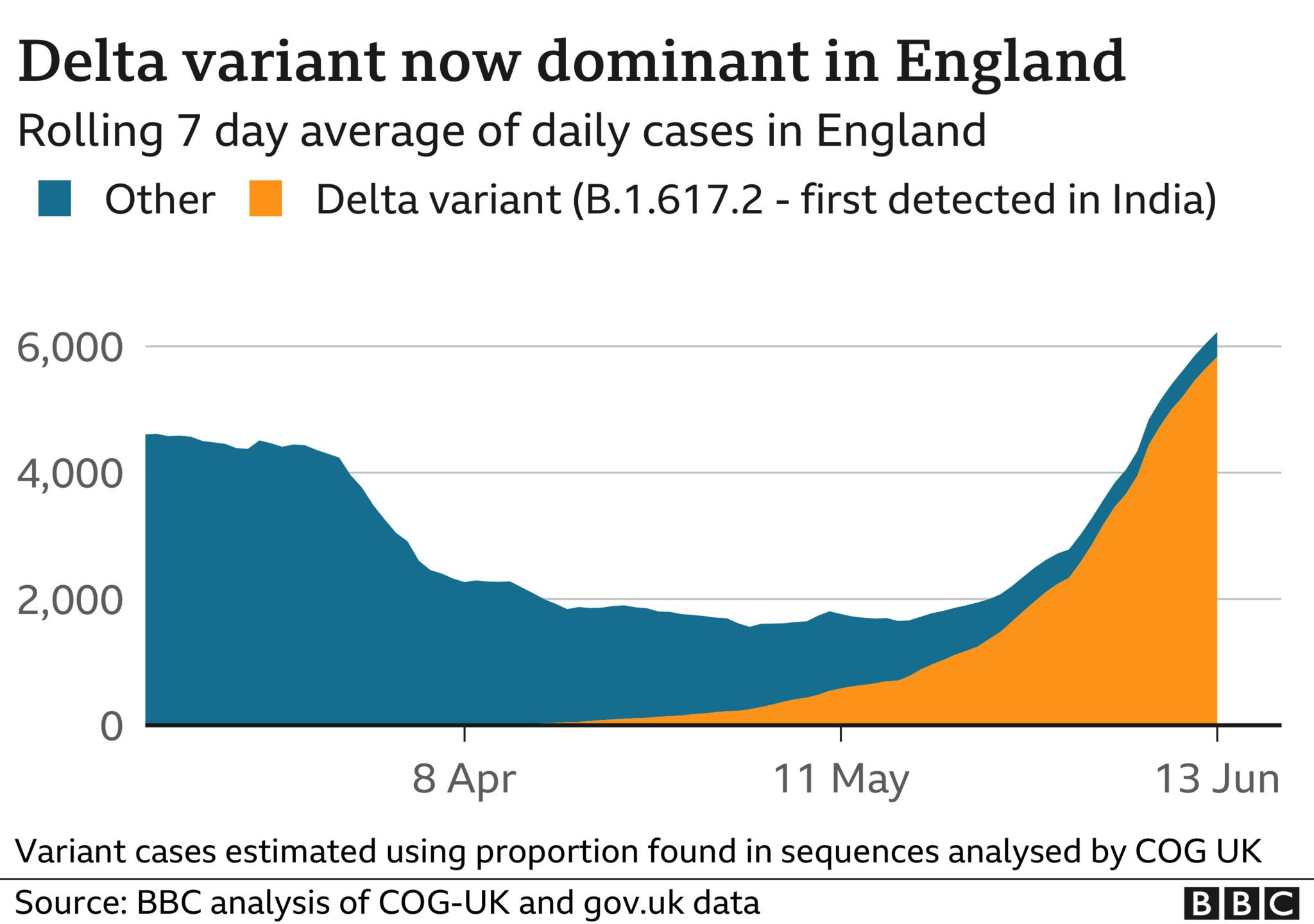People have started catching a new Covid variant that could soon take off and become the dominant type, according to scientists. Identified in Germany, in June, cases of the XEC variant have since emerged in the UK, US, Denmark and several other countries, say users on X, formerly known as Twitter. It has some new mutations that might help it spread this autumn, although vaccines should still help prevent severe cases, experts say. For those more likely to become seriously ill from Covid, the NHS offers a free booster shot. The vaccines have been updated to better match recent variants, although not XEC, which has emerged from earlier Omicron subvariants.
Prof Francois Balloux, director of the Genetics Institute at University College London, told BBC News that although XEC has a "slight transmission advantage" over other recent Covid variants, vaccines should still offer good protection. He says it is possible XEC will become the dominant subvariant over the winter though. Director of the Scripps Research Translational Institute, in California, Eric Topol says XEC is "just getting started". "And that's going to take many weeks, a couple months, before it really takes hold and starts to cause a wave," he told the LA Times. "XEC is definitely taking charge. That does appear to be the next variant. But it's months off from getting into high levels."
Symptoms are thought to be the same cold or flu-like ones as before: aches, tiredness, a cough or sore throat. Most people feel better within a few weeks of Covid but it can take longer to recover. There has been "strong growth" of XEC in Denmark and Germany, Covid data analyst Mike Honey says on X. There is far less routine testing than before, making it difficult to know how much Covid might be around. The UK Health Security Agency (UKHSA) says it is normal for viruses to mutate and change.
People qualifying for a free booster vaccine include: adults aged 65 years and over, those living in a care home for older adults, those over the age of six months in a clinical risk group and some frontline NHS, care home and social care workers. The main vaccination drive for flu and Covid will start in October, although some may receive their shots earlier. Dr Gayatri Amirthalingam, UKHSA Deputy Director, said: “It is normal and expected for viruses to genetically change over time. UKHSA continues to monitor all available information relating to emerging Covid variants in the UK and internationally, and to publish our data regularly. Vaccination provides the best protection against serious illness from COVID-19, and we urge those who are contacted by the NHS to come forward to receive their autumn vaccine.”
Understanding the XEC Variant
The emergence of XEC, a sublineage of the Omicron variant, has sparked concerns about its potential impact. The XEC variant is a hybrid of two previously identified Omicron subvariants: KS.1.1 and KP.3.3. These subvariants have distinct characteristics, and their combination in XEC has raised questions about its potential for transmissibility and severity.
Key Characteristics of XEC
XEC is characterized by a combination of mutations from its parent subvariants. These mutations are primarily located in the spike protein, which the virus uses to attach to human cells. The KS.1.1 subvariant, also known as a FLiRT variant, is characterized by specific mutations in the spike protein that are thought to enhance its ability to bind to human cells. The KP.3.3 subvariant, on the other hand, belongs to the FLuQE category, also known for its mutations in the spike protein that improve its binding to human cells.
This unique combination of mutations in XEC could explain its potential for increased transmissibility. While XEC has been detected in several countries, its prevalence remains low compared to other circulating variants. However, its rapid spread in some regions, particularly in Europe, has raised concerns about its ability to become the dominant strain in the coming months.
What Makes XEC Unique?
XEC, a sublineage of the omicron variant, was first reported in Berlin, Germany, in June and is now spreading "quite rapidly" across Europe, North America and Asia, according to Covid data analyst Mike Honey. Slovenia had high rates of infection with this variant in August as over 10 per cent of Covid case samples from the country contained XEC. The XEC variant is a hybrid of two previously discovered Omicron subvariants – KS.1.1 and KP.3.3 – of the novel coronavirus that causes Covid. Analysts point to strong growth of the variant in Denmark, Germany, the UK, and the Netherlands. As the novel coronavirus continues to evolve, data suggests XEC is growing steadily each day with an advantage over previously known subvariants. At this juncture, the XEC variant appears to be the most likely one to get legs next. Its current status nicely tracked by @Mike_Honey_ 's threadhttps://t.co/4AnLa3MXfz
The Impact of XEC on Public Health
While the exact impact of XEC on public health is still being assessed, experts are cautiously optimistic about the current available vaccines' effectiveness. The updated Pfizer and Moderna COVID-19 vaccines that are now available target the KP.2 variant, and the updated Novavax one targets the JN.1. Since the XEC is not worlds apart from these targeted strains that were prominent earlier this year, the updated vaccines should provide at least some protection against the XEC variant. Exactly how much remains to be seen.
The symptoms associated with XEC are believed to be similar to those of previous Covid variants, including fever, sore throat, cough, loss of sense of smell, loss of appetite, and body aches. The US Centers for Disease Control & Prevention also advises people to practise good hygiene and to take steps for cleaner air. Researchers have called for monitoring the XEC variant more closely to better understand its symptoms. The UKHSA continues to monitor the situation closely and urges those eligible for a booster vaccine to get one, as it provides the best protection against serious illness. With the winter months approaching, experts are keeping a close eye on the potential for a surge in cases driven by the XEC variant.
Prepare for the XEC Wave
As we move into the fall and winter months, it's crucial to be prepared for the potential impact of the XEC variant. While the current vaccines are expected to offer protection against severe illness, it's still essential to take precautions. Here's what you can do:
-
Get vaccinated and boosted: Ensure you're up-to-date on your Covid-19 vaccinations and booster shots, as these provide the best protection against severe illness.
-
Practice good hygiene: Wash your hands frequently, avoid touching your face, and use hand sanitizer when soap and water are not available.
-
Wear a mask in crowded indoor settings: Consider wearing a well-fitting mask, especially in crowded indoor environments.
-
Stay home if you're sick: If you feel unwell, stay home and avoid contact with others to prevent the spread of the virus.
The XEC variant serves as a reminder that the pandemic is not over and that ongoing vigilance is necessary. By taking proactive steps to protect ourselves and others, we can mitigate the potential impact of this new variant and navigate the coming months with greater confidence.

















